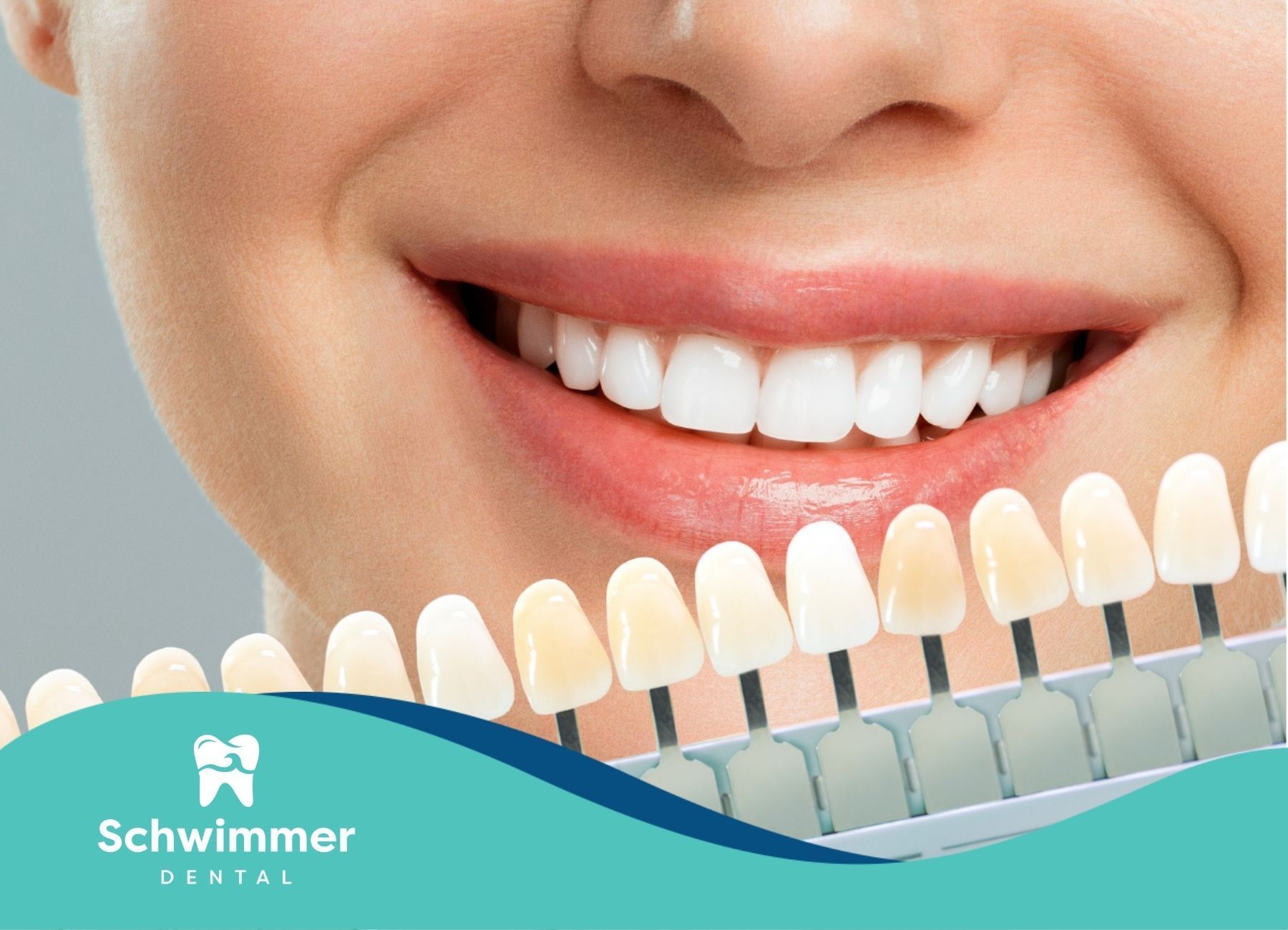Elevate Your Oral Health: Top Vitamins for Stronger Gums
Essential Vitamins for Gum Health
Maintaining optimal gum health is crucial for overall oral hygiene. Incorporating key vitamins and nutrients into one’s diet plays a significant role in strengthening gums and preventing periodontal diseases. Here are some essential vitamins for gum health.
Importance of Vitamin C
Vitamin C is vital for sustaining healthy gums. This nutrient is essential for collagen synthesis, which is a critical component of gum tissue. A deficiency in vitamin C can lead to inflamed, bleeding, and painful gums. Furthermore, low levels of vitamin C have been associated with an increased risk of periodontal diseases.
| Vitamin C Sources | Vitamin C Content (mg) |
|---|---|
| Kiwi | 71 |
| Strawberries | 59 |
| Oranges | 53 |
| Bell Peppers | 80 |
Incorporating these foods into a healthy gums diet can help boost vitamin C intake and support gum health.
Benefits of Omega-3 Fatty Acids
Omega-3 fatty acids, such as DHA and EPA found in fish oil supplements, have been shown to have anti-inflammatory and antibacterial properties. These compounds can significantly improve measures of periodontal disease, making them an essential addition to an oral health regimen. Regular consumption of omega-3s supports gum health and reduces inflammation.
| Omega-3 Sources | Omega-3 Content (g) |
|---|---|
| Salmon | 2.26 |
| Mackerel | 2.66 |
| Chia Seeds | 5.06 |
| Walnuts | 2.57 |
Incorporating foods that promote gum health like fatty fish, walnuts, and chia seeds could help improve gum resilience.
Role of Probiotics
Probiotics play a crucial role in maintaining oral health by balancing the microbiome in the mouth. Probiotic supplements containing strains like Lactobacillus reuteri have been shown to effectively reduce harmful bacteria in the gums and treat periodontal disease. By promoting a healthy balance of bacteria, probiotics can help strengthen gums and improve overall oral health.
| Probiotic Sources | Probiotic Strains |
|---|---|
| Yougurt | Lactobacillus acidophilus |
| Kefir | Lactobacillus reuteri |
| Sauerkraut | Various strains |
| Kimchi | Various strains |
Adding these best foods for healthy gums into one’s diet can help enhance the benefits of probiotics in gum health.
Protective Vitamins and Minerals
In addition to essential vitamins, certain minerals and compounds also play a vital role in maintaining gum health. This section covers melatonin, vitamin D, and calcium, explaining their importance in protecting gums.
Melatonin for Gum Protection
Melatonin is a hormone known for its anti-inflammatory and antioxidant properties. Research indicates that melatonin may help protect gums from damage. A study found that lower levels of melatonin in saliva were linked to more severe periodontal disease. Including foods that naturally boost melatonin may contribute to improved gum health.
| Property | Melatonin Effect |
|---|---|
| Inflammation | Reduces |
| Antioxidant | Yes |
| Gum Health | Supports |
Impact of Vitamin D
Vitamin D is a key nutrient for boosting gum health. It enhances the body's antibacterial defense mechanisms, maintains healthy gum tissue, and reduces inflammation. Studies have shown that individuals suffering from periodontal disease tend to have lower levels of vitamin D in their blood. Adequate vitamin D intake can be achieved through sunlight exposure and certain dietary sources.
| Vitamin D Sources | Approximate Amount (IU) |
|---|---|
| Fatty Fish (Salmon) | 570 |
| Fortified Milk | 100 |
| Egg Yolk | 37 |
| Fortified Cereal | 40 |
Significance of Calcium
Calcium is essential for strengthening tooth enamel, and a deficiency can lead to weakened teeth, ultimately increasing the risk of tooth loss. It plays a crucial role in maintaining both gum and overall oral health. Including adequate calcium in the diet is vital for maintaining healthy gums and strong teeth.
| Calcium Sources | Approximate Amount (mg) |
|---|---|
| Milk (1 cup) | 300 |
| Yogurt (8 oz) | 400 |
| Cheese (1 oz) | 200 |
| Leafy Greens (1 cup) | 250 |
By focusing on these protective vitamins and minerals, individuals can support their gum health and overall oral well-being. Incorporating these nutrients into a healthy gums diet can lead to positive outcomes for gum health.
Vitamin Deficiencies Affecting Oral Health
Understanding the impact of vitamin deficiencies on oral health is crucial for maintaining strong gums. Certain vitamins play vital roles in gum health, and deficiencies can lead to significant oral health issues.
Vitamin B12's Role
Vitamin B12 is essential for maintaining healthy blood cells and contributing to wound healing. A deficiency in this vitamin can elevate the risk of severe periodontitis. Studies indicate that individuals with low vitamin B12 levels are more likely to experience severe symptoms of gum disease, such as increased gum pocket depth. Ensuring adequate B12 intake may be pivotal for individuals looking to promote gum health.
| Vitamin B12 Intake Recommendations | Daily Recommended Amount |
|---|---|
| Adults 19-50 years | 2.4 mcg |
| Pregnant Women | 2.6 mcg |
| Lactating Women | 2.8 mcg |
Understanding Vitamin A
Vitamin A plays a significant role in oral health by supporting saliva production. Saliva is crucial for breaking down food and removing bacteria from between teeth. Foods rich in vitamin A include orange-colored fruits and vegetables, fish, and egg yolks, which are also available in supplement form. A deficiency in vitamin A may lead to reduced saliva production, potentially increasing the risk of dental issues.
| Vitamin A Sources | Common Foods |
|---|---|
| Animal Sources | Fish, Egg yolks, Beef liver |
| Plant Sources | Carrots, Sweet potatoes, Spinach |
Contribution of Vitamin K
Vitamin K is crucial for oral health, particularly in preventing tooth decay and gum disease. This vitamin helps optimize calcium use within the body and aids in preventing calculus formation on teeth. Leafy green vegetables, broccoli, and other foods like beef liver and soybeans are excellent sources of vitamin K. Ensuring an adequate intake of vitamin K can contribute significantly to overall gum health.
| Vitamin K Sources | Common Foods |
|---|---|
| Leafy Greens | Kale, Spinach, Cabbage |
| Other Sources | Broccoli, Soybeans, Beef liver |
Maintaining an adequate intake of these vitamins can have a profound impact on gum health. Incorporating foods that promote gum health and understanding deficiencies will support a robust oral health routine.
Final Thoughts
A well-balanced diet rich in essential vitamins and minerals is key to maintaining strong, healthy gums and preventing periodontal disease. By incorporating nutrient-dense foods like citrus fruits, fatty fish, probiotics, and leafy greens, you can support your gum health and overall oral hygiene.
Ready to take your oral health to the next level? Schedule a checkup with Schwimmer Dental today and ensure your smile stays strong and healthy!
Resources:
- https://www.healthline.com/nutrition/vitamins-for-gums
- https://pmc.ncbi.nlm.nih.gov/articles/PMC5412446/
- https://pubmed.ncbi.nlm.nih.gov/16945031/
- https://www.parodontax.com/gum-health/maintaining-healthy-gums/gum-health-vitamins-and-minerals/
- https://pmc.ncbi.nlm.nih.gov/articles/PMC10230257/
- https://www.colgate.com/en-us/oral-health/nutrition-and-oral-health/5-essential-vitamins-for-teeth-and-gum-health



